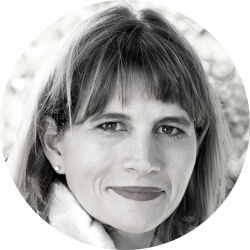The Market Corner: Applying Systems Thinking in the Health Sector, Part 2
Image

This post is the second in a two-part Market Corner series looking at health systems and why health professionals are turning to systems thinking and market systems development (MSD) approaches in their work. Read part one here.
Earlier this month, I spoke with Anne Liu, Senior Technical Advisor for the Clinton Health Access Initiative (CHAI) and Lecturer at SIPA Columbia University, and Wilfred Forfoe, Regional Technical Officer for the President’s Malaria Initiative (PMI) Impact Malaria, to understand how health systems strengthening (HSS) professionals apply systems thinking, and what we as market systems development practitioners can learn from our health colleagues.
Attuning to the role of people in influencing health service delivery and outcomes.
Though HSS professionals are intensely aware of the interplay between different components or building blocks (e.g., service delivery, information, etc.), their organizing lens is people. People are at the center of the system — not just as mediators and beneficiaries, but as actors (e.g., health workers, managers, policymakers) in driving the system itself. Understanding human behavior and how feedback loops between different elements — such as individuals, households, communities, and services — create positive or negative reinforcement is key for HSS professionals striving to strengthen health systems.
Image

In comparison to the work of MSD practitioners, supply and demand transactions by businesses are at the center of our analytical framework (i.e., “the donut”). People or behavior also factor in — particularly in the areas of rules and norms — but they are not the organizing principle. Considering the intense focus HSS professionals place on people, both as beneficiaries and actors driving the system itself, it made me wonder: Are we missing important insights by not applying a stronger human (behavior) lens in our analysis?
Systems dynamic tools are helping HSS practitioners navigate uncertain and evolving contexts.
In Anne’s experience, causal loop diagrams have increasingly become a useful tool. The tool emerged from the systems dynamics field and helps HSS professionals, among others, better capture and interpret the system as a whole as well as critical feedback loops within the components (or building blocks). Though the methodology and tools can be overwhelming at first, especially when it comes mapping unintended consequences, these types of tools, in Anne’s experience, can better integrate and showcase the impact of external and internal forces such as leadership, people, and the policies at play in our highly dynamic worlds.
Causal loop diagrams and other tools to anticipate and monitor changes within a dynamic system are not new to MSD but have been slow to gain wide-spread adoption, despite their utility. Why? Are we missing the bigger (dynamic) picture by focusing on market actors, supporting functions and rules and norms in isolation of one another?
Supportive leaders are essential for success and can help HSS professionals embrace uncertainty and adapt along the way.
Project leaders set the vision and tone for the program and are central to the success of any HSS program, according to Wilfred. Anne added that leaders are incredibly influential when it comes to creating a safe space for iterating. Leaders who acknowledge that there are a lot of different factors — including our own action or lack of action — that can influence the success or failure of an intervention create more conducive environments and promote a culture and way of working that embraces the uncertainty of the system and need for adaptation along the way.
The outsized influence of leaders in MSD programs is not new. I was struck, however, by the point Wilfred and Anne made that supportive leaders can be instrumental in helping implementers of systems programs navigate uncertainty by setting the tone and creating the space for failure, learning, and adaptation.
While adaptive management skills are often listed on MSD Team Leader or Chief of Party job descriptions (there is even guidance for hiring adaptive staff), we must ask: are they sufficient? The points made by Anne and Wilfred made me curious: Do we need to expand our conception of what adaptive management skills are to include creating a conducive culture and space for experimentation, failure, and learning?
Stay tuned for next month’s Market Corner, which will explore the characteristics and competencies of great MSD team leaders with MSD thought leaders and fresh voices. And In the meantime, tell us about your own experience with applying systems approaches! Post your thoughts or share a useful tool via your Marketlinks account, or send them to us at info@marketlinks.org.
About
Image

Anne Liu
Anne Liu specializes in the design and implementation of technology to expand access to healthcare in low resource settings. She has worked on innovative solutions for disease surveillance, health education, health worker management, and health systems strengthening across a range of global health priorities, including the 2014 West Africa Ebola outbreak, malaria elimination, and management of childhood illnesses. Previously, she led health systems strengthening efforts for the Millennium Villages Project from 2010-2015, with a focus on community health worker programs and information systems. Anne currently leads product strategy as a Senior Technical Advisor for Clinton Health Access Initiative's Digital Health team and is an instructor at Columbia University's School of International Public Affairs on global health and public policy. She received her Masters in International Health at Johns Hopkins Bloomberg School of Public Health, Masters in Biomedical Sciences at Tufts University School of Medicine, and B.S. at the Massachusetts Institute of Technology.
Image

Wilfred Forfoe
Wilfred Forfoe is a public health specialist and entrepreneur with over 20 years of practical field and research work experience. For the past 10 years, he has worked with different USAID-funded projects, such as JSI/Focus Region Health Project which aimed to strengthen the health system in Ghana and JS/SPRING Ghana which led the effort to reduce stunting in the northern and upper east regions. He currently works with PMI/Impact, which is designed to improve malaria service delivery and reduce mortality and morbidity associated with malaria in Ghana. Mr. Forfoe has a MSc in food science technology and nutrition and a MSc in Health Service Planning and Management. He also has a BSc in Community Nutrition.
Image

Holly Lard Krueger
Holly Lard Krueger is a managing partner at the Canopy Lab and a market systems development expert with over 15 years of experience providing technical advice in the field of private sector development/engagement with a specific focus on applying digital technology, gender equality and social inclusion (GESI), market systems, and Value for Money (VfM) principles to project and strategy design for agriculture, humanitarian aid, business enabling environment reform, trade, urban development, and women’s economic empowerment programs.
Holly is a proven strategic leader, having managed large market systems projects with diverse teams. She is also skilled as a strategic advisor, coach, and trainer in the practical application of systems approaches to market development, and she is currently an advisor to USAID’s Bureau for Humanitarian Assistance, a World Bank-funded program in West Africa (TFWA), a DFAT-funded program in Indonesia (PRISMA), and a FCDO-funded program in the Democratic Republic of the Congo (Essor). Holly is based in Morocco and has worked in over 15 countries in Africa, Asia, and the Middle East and has implemented projects and conducted evaluations for leading donors, including the Bill & Melinda Gates Foundation, DFAT, IFC, FCDO, USAID, and the World Bank. She has an M.A. from Johns Hopkins School of Advanced International Studies and a B.A. from Vanderbilt University.


